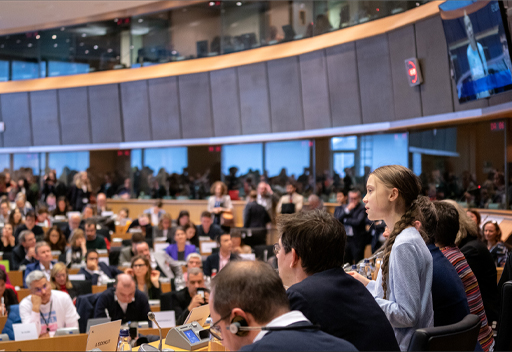2.3 Civic engagement and climate-related politics
Civic engagement is a critical component of climate-related politics, broadly defined as the process by which people exercise their democratic rights and participate in activities that address the concerns, interests and common good of a community, be it geographical, social or cultural (Brady, Cheskin and McGregor, 2020). Civic engagement includes a spectrum of activities that runs from formal to non-formal participation. Formal participation includes behaviours such as voting, contacting municipal officials, donating to or working on a political campaign, and attending public input sessions. Non-formal participation includes broader activities encompassing interest in public affairs as well as general social interactions in the community (Powers and Webster, 2021).
Civic engagement is vital for people of all ages, as a form of climate crisis-related action and, more generally, as a means of creating a more equitable society for all. However, educators can play a particularly important role in supporting young people in developing the knowledge, skills, attitudes and behaviours relevant to civic engagement.

Research suggests that youth civic engagement encompasses a complex interplay of civic capacity development and motivation as a response to sociopolitical factors (Powers and Webster, 2021). A number of recent youth-oriented policy frameworks [Tip: hold Ctrl and click a link to open it in a new tab. (Hide tip)] developed by UN agencies have identified youth civic engagement as an important goal. Within these policy frameworks, the strategies emphasised to promote youth civic engagement include a range of traditional approaches, such as youth work and volunteerism, alongside somewhat newer policy innovations, such as dedicated youth parliaments and youth councils designed to allow young people to influence decision-making at all levels of governance, from the local to the supranational. These strategies aim to build youth leadership capacity, highlight issues of importance to young people and provide them with experience of engaging with democratic processes. A prominent stated concern of many policies is to ensure that the structures and processes are representative of different groups of youth, including vulnerable and marginalised groups (Chaskin, McGregor and Brady, 2018).
It’s important to acknowledge that young people’s participation in civic society can take place in various settings, both online and offline. Although news coverage often skews the representation of youth actors in civic activities by focusing on mass coverage of large-scale public events such as rallies and demonstrations, these only show a fraction of the places where civic participation occurs. Young people have also been accused of apathy and disinterest in politics, when in fact they are often engaging with politics, but in a non-traditional way:
There is a strongly held view that, rather than being apolitical or disengaged, young people are understandably frustrated and cynical as a consequence of four decades of neoliberal policies which have portrayed youth as a threat to democracy and public order.
Powers and Webster (2021) argue that young people make civic contributions in places where they are in closer proximity to the issue, such as schools, individual classrooms, after-school programmes, neighbourhoods and community-based organisations. The UNICEF report ‘Digital civic engagement by young people’ (Cho et al., 2020) gives a helpful overview of some of the ways in which digital spaces and tools are being used for civic engagement, and could inform teaching around this topic.
